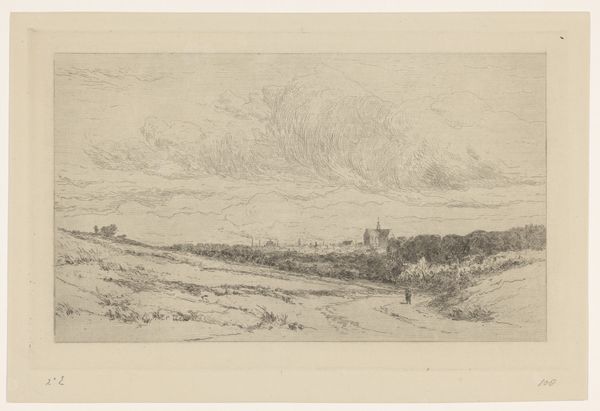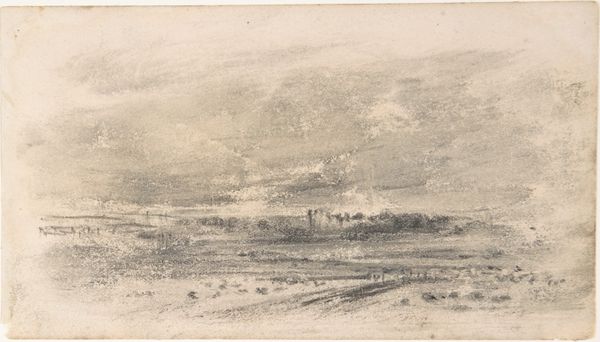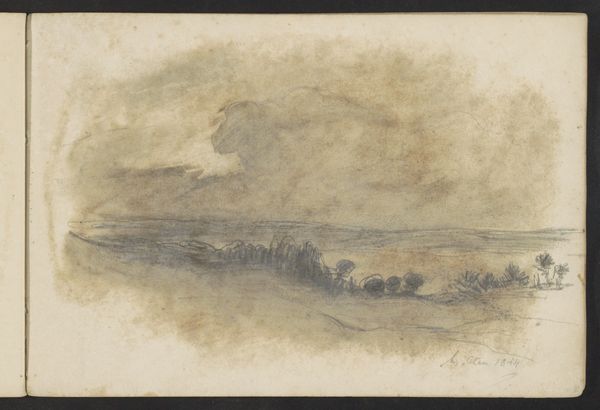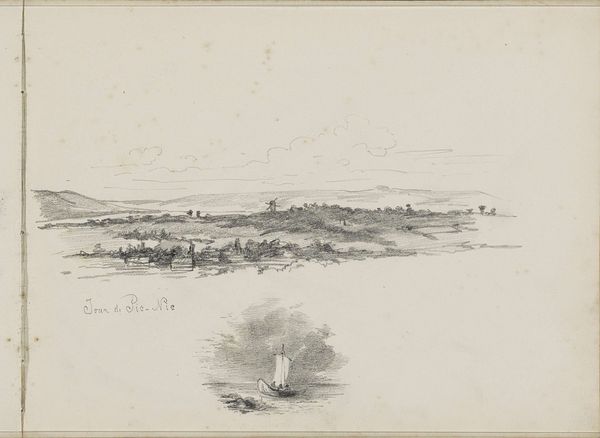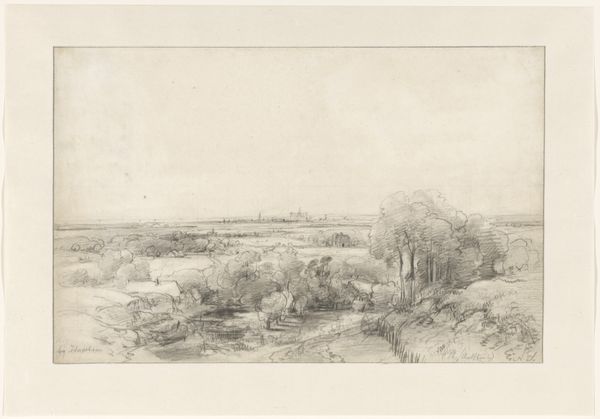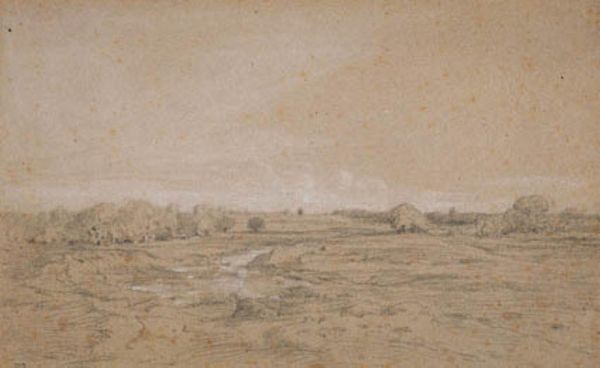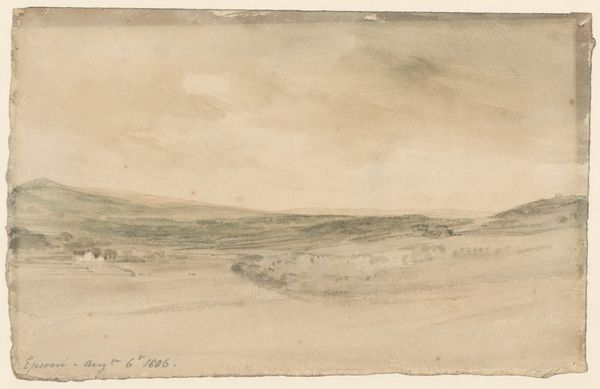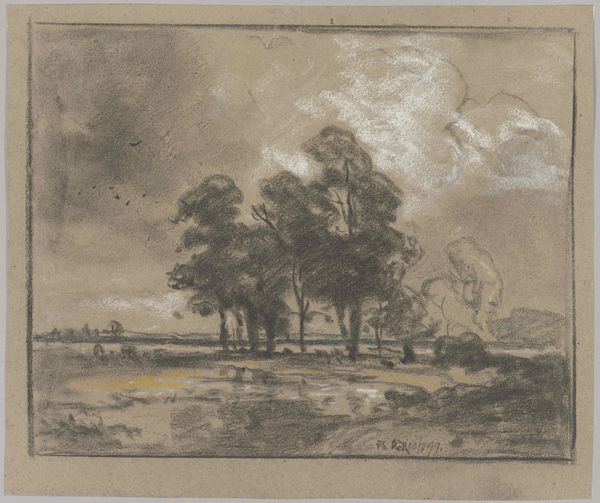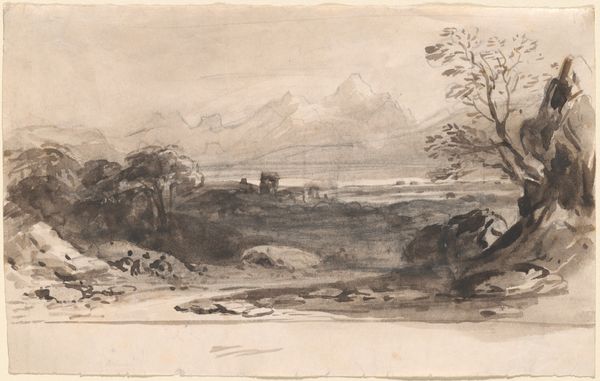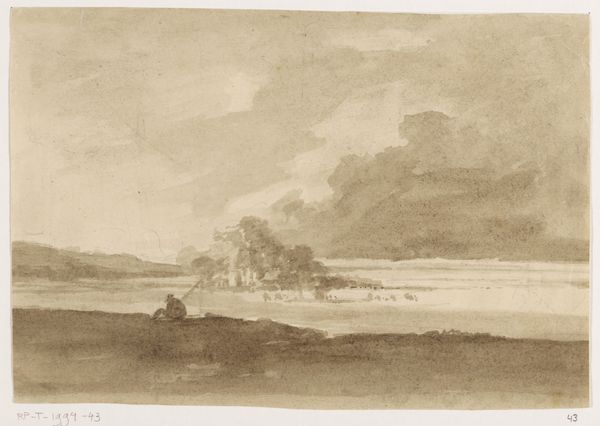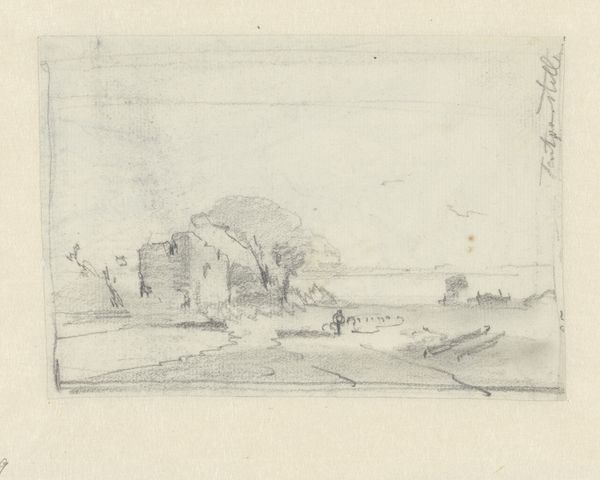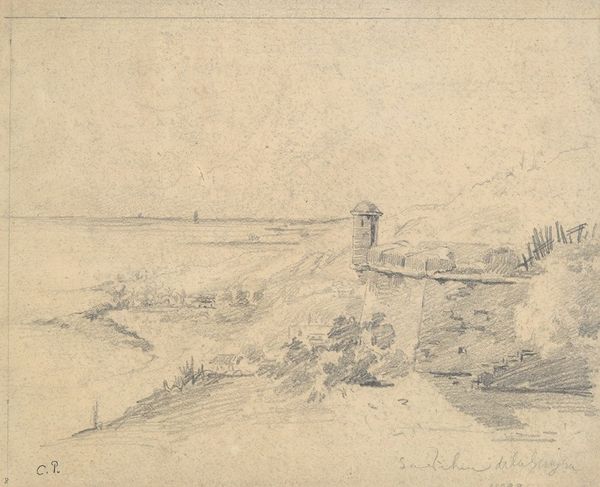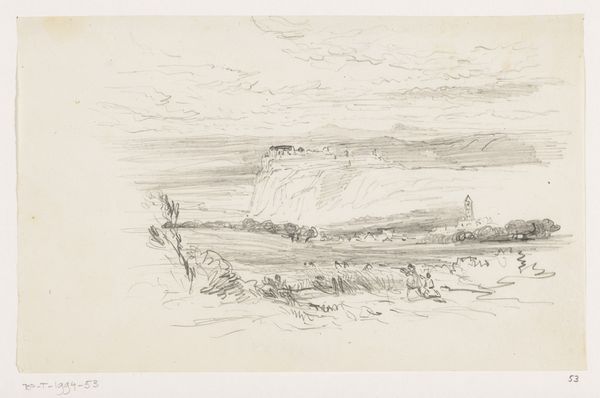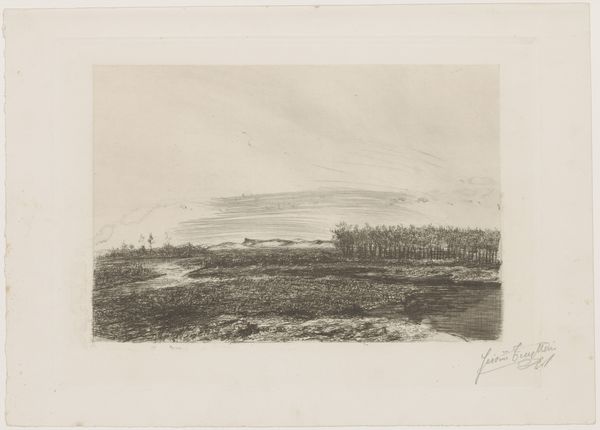
drawing, paper, pencil
#
drawing
#
impressionism
#
landscape
#
paper
#
pencil
#
watercolor
#
realism
Dimensions: height 101 mm, width 162 mm
Copyright: Rijks Museum: Open Domain
This drawing of ‘Sneppenschot’ was made by Johannes Tavenraat in the 19th century. The windmills in the background stand as potent symbols of human ingenuity and our relationship with the natural world. We see windmills throughout history; these structures were once vital for grinding grain, pumping water, and supporting communities. The sight of a windmill evokes the slow march of time and the ingenuity of humanity in harnessing the power of nature. It is fascinating to trace the windmill across different eras and cultures, from its early forms in Persia to its iconic presence in the Dutch landscape. Each variation tells a story of adaptation and cultural significance. The persistence of the windmill in our collective consciousness reflects our continuous need to engage with and transform our environment. This humble structure engages us on a psychological level, evoking feelings of both nostalgia and forward-thinking. The motif has resurfaced and evolved across time, taking on new meanings in different historical contexts.
Comments
No comments
Be the first to comment and join the conversation on the ultimate creative platform.
